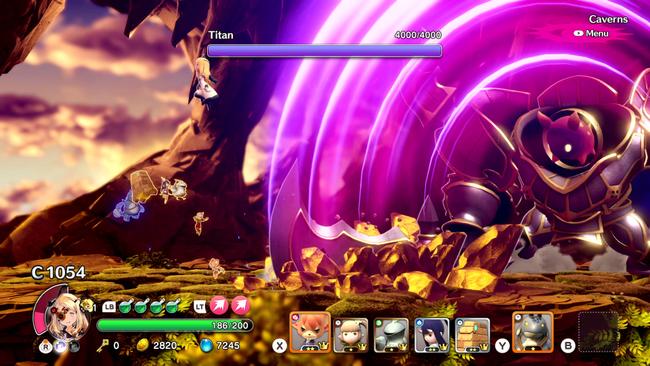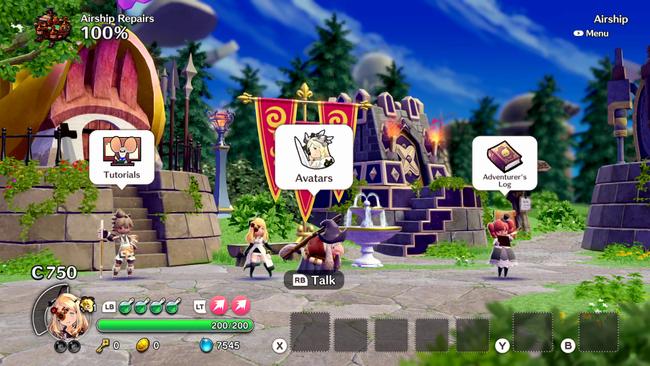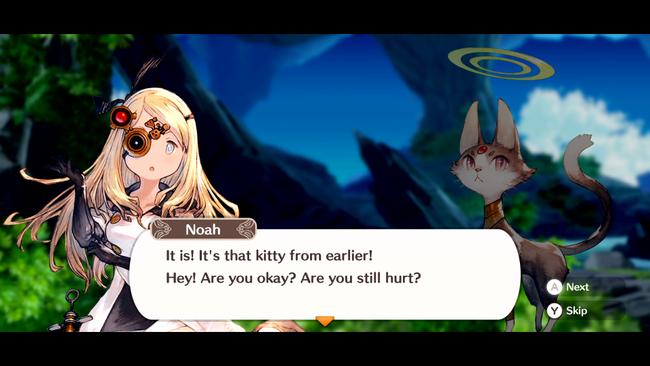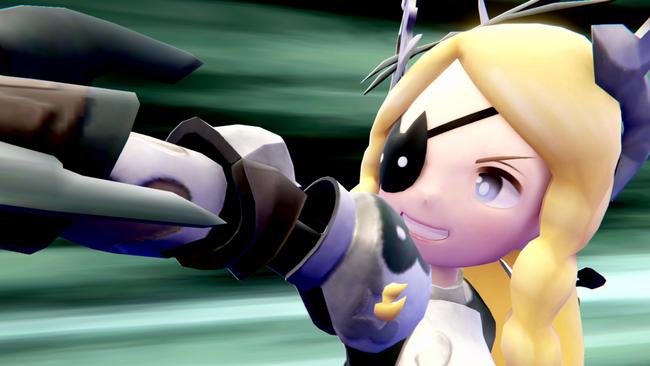
Little Noah: Scion of Paradise Review
It's always a breath of fresh air when a game like Little Noah: Scion of Paradise comes around. Not because it's a unique genre, that's lacking in support; it's a roguelite, which is a genre that continues to receive plenty of support on both PC and console. Rather, it's always nice to sit down and review a game where I had no intention of playing it in the first place, that perhaps many players aren't giving their time of day. Doubly so when it's a game that comes out of nowhere.
Sure, people are playing Little Noah, but how many people know what this game even is - let alone that it came out to begin with? There's an allure to coming into a game completely blind, especially for those of us that make it a job to stay up-to-date with gaming news and announcements as a whole. It wasn't until after I'd finished the game for myself that I even learned that Scion of Paradise was a belated spin-off for a long-since dead mobile game, reusing many of the same assets. Whatever game that original Little Noah was, Scion of Paradise differs significantly from that source material.

As a roguelite, all the common elements of the genre are well represented. Little Noah opts for action-based combat, with plenty of movement options at Noah's disposal. You can dash both on the ground and in the air, you can double jump; you eventually gain access to an ability that can send you hurtling in any direction at the push of a button, albeit with a moderate cooldown before you can use the skill again. The goal of the game is to deal with enemies and platforming challenges present in each room on the map for each area, finding and exhausting all avenues of powering up, while also searching for the exit to the next stage.
It's all very fast-paced, and there's nothing like Secret Rooms to watch out for - so the player's main goal is just to deal with enemies, and rush through areas as quickly as possible. One major wrinkle comes with how Noah herself attacks enemies; it's not that you're gaining different weapons for her to equip, but instead she uses her abilities as a Soulchemist to summon enemies to attack for her. Each monster you add to your loadout corresponds to an attack for your combo chain and you can mix and match where they'll slot in on that combo chain at basically any time. Beyond your primary combo, Noah can also equip up to 2 more "Lilliputs" to additional buttons, which will utilize stronger attacks that require a lengthy cooldown period.

Some Lilliputs will offer melee attacks for Noah's combo, while others will offer ranged abilities. Some might have additional attributes, like being able to have a chance to stun or knockback enemies. Others might force Noah to move in a specific way, instead of locking her in place. While you'll inevitably run into many of the same Lilliputs across different runs, there's plenty enough variety to make every run feel different. Any successful run will leave you with many, many Lilliputs at your disposal, however; so there's plenty of wiggle room to find a loadout that suits your personal playstyle, more likely than not.
Beyond picking up new Lilliputs, the main method of bolstering Noah's strength during each run comes down to Accessories and Crystals you can find and pick up across the map. Accessories offer unique buffs to Noah, while Crystals offer a more basic boost to your base attributes (HP and Strength) alongside a boost to damage based on the types of attacks you rely upon (melee, ranged, etc). Accessories can add something as simple as a boost to the damage for your Boost attack (a screen-clearing ultimate attack that can only be used when its bar has filled), to abilities like leaving a trail of ice whenever you dash on the ground, to increasing your affinity or resistance to specific damage types, and much more.

Every item that you pick up in a run will contribute to Noah's gear score - or Power - and it's this score that determines exactly how powerful you are at any given time. While it goes without saying that players will want to prioritize items that mesh with your playstyle, it's in your best interest to pick up as many items as you can, as there are simply no downsides to doing so, and your Power is a major part of what determines your stat scaling overall, before accounting for whatever buffs you'll be receiving from your crystals and accessories. At the end of every run, you'll be graded based on how many items and Lilliputs you managed to pick up, which will then all be converted to Mana that can be spent back at base, in order to upgrade various facilities.
These facilities can range from increasing Noah's base stats, to adding Potion slots that allow Noah to heal herself without the need of a healing item on the field - or even gifting her a set of accessories or Lilliputs from the beginning of a run. Little Noah already isn't an incredibly difficult game, but Scion of Paradise is certainly balanced around the idea that no matter your skill level it should only be a matter of time before you can see the credits. While this does mean that more hardcore players might be left wanting for a challenge that even the game's Hard Mode might be unable to provide (at least for now), I don't necessarily think that's a bad thing.

In practice, the gameplay loop for Little Noah revolves around blitzing through levels, taking advantage of your movement abilities to dart here and there across rooms, and decimating enemies as quickly as possible. The further into each run you go, and the more you've managed to upgrade Noah's base abilities back at the airship, the more hectic these runs become. At the best of times you'll feel like a killing machine, and Scion of Paradise more than succeeds at the roguelite staple of achieving that power fantasy where it feels like you can accomplish anything. Combine that with a healthy variety of interesting boss fights, some breath-taking locales to travel through, and a charming - albeit simple - storyline, it's easy to get engrossed in what the game has to offer.
There are plenty of roguelites out there that pride themselves on offering a difficult experience, while Scion of Paradise instead feels secure in offering something of an entry point for players - perhaps even children - to get into the genre as a whole. Even if there isn't any real reason to continue playing the game after the credits roll, it's hard to deny that I had a wonderful time with Little Noah; and in a sea of similar games that aim to challenge players to perform their absolute best, sometimes it's nice to just sit down and play a game that aims to make the players feel powerful. Little Noah: Scion of Paradise strikes that balance without making the game feel unengaging, and that's by no means an easy feat. Perhaps Cygames' planned updates will offer something for those players that might still ache for a real challenge, but even if they don't end up delivering on that promise it's almost impossible to avoid falling for Little Noah's charms.